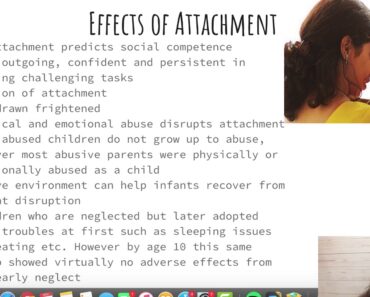*Please note that the names of parents and children mentioned in this article have been changed to protect each family’s privacy.
For 11 years, Hannah Riley* and her ex-husband, Scott, were a model of modern co-parenting. They spoke daily. Their daughter, Emma, split her time evenly between their homes — both located in the same suburb of Montreal — and the three of them hung out together regularly. “We co-parented better than most married couples,” says Hannah.
Then Scott decided to move in with his new girlfriend, and that 50-50 parenting time split was reduced to lunch or dinner with Emma every couple of weeks. Hannah and Emma found out about the move after it had already happened; he told Emma over one of their lunches. Scott gave away Emma’s dog — without telling her — packed up her things and dropped them off at her mother’s house.
Initially, he proposed that the 50-50 split continue, but the commute from Scott’s new place downtown to Emma’s suburban high school would have been unfeasible, so she moved in with her mother full-time. And when Emma asked if she could spend more time at her dad’s over the summer, he said he had to ask his girlfriend. “The answer was no,” says Hannah. “They said they had no room for her there.”
Successful co-parenting relationships are delicate highwire acts. Parents need to be flexible and adaptable, and find a way to communicate productively with each other. They need to establish shared parenting goals for the family, figure out how they want to make decisions and determine where their kids will spend their time. Once all of the above clicks into place, they might find a balance and rhythm that works for everyone.

Then one parent decides they want to move
“It doesn’t take a lot to knock co-parents off balance,” says Shelley Cook, a social worker, psychotherapist and family mediator in Burlington, Ontario. “And relocation is a lot.” A relocation is defined as a move that will have a serious impact on a child’s relationships and one that will substantially change whatever parenting schedule has been agreed on. (For instance, a move from one part of Calgary to another—considered a change of residence — would cause less upheaval than a relocation from Saskatchewan to New Brunswick.) Those shared parenting goals that kept separated couples on the same page are suddenly superseded by one person’s desire to change the status quo.
In 2021, the Canadian Divorce Act was updated significantly for the first time in over 30 years. Overall, the goal was to make the legislation more child-focused — proprietorial words like “custody” and “access” were replaced with more accessible terms like “decision-making responsibility” and “parenting time.” The idea that, if it’s in their best interests, kids should get to spend as much time with each of their parents as possible is now reflected in the law.
Relocation was a big topic, too. There are certain “best interest” criteria that courts can now consider when evaluating a move, and, depending on the parenting time split, relocating parents might have to prove the proposed move adheres to them. Also, if a parent plans to relocate, they have to provide written notice at least 60 days before the move (barring issues of family violence). The parent who’s not moving then has 30 days to object.
That’s something Fiona Sawyer* wished she knew before she left Toronto in 2021 with her ex, Noah, and their son, Oliver, who is now 10. Fiona and Noah had separated in 2017, but were successful co-parents, in no small part because they lived a 10-minute walk from each other. Noah would sleep over the night before Oliver’s birthday, he spent Christmases with her family, and Fiona remained close with her in-laws. “I put all my energy into maintaining a family unit,” she says.
So when Noah was offered a three-year contract in Montreal, the city he grew up in and where his father lived, Fiona and Oliver moved with him. Her career had been sidelined during the pandemic, and she liked the idea of her son getting to know his dad’s hometown and his grandfather.

The move wasn’t easy
It took a month to get her son into school, and more time still to access after-school care. “And I didn’t really have any friends here,” she says, “or the space to make any, because I always had Oliver with me.” Without a network, or the childcare needed to give her time to build one, she found herself underemployed, helping a few families with their newborns. Her son was bored and her ex was overwhelmed with his new job, which wasn’t able to fully sustain the three of them financially. Plus, it was 2021, and the city was still subject to lockdowns and curfews. It was a tough time to move to Montreal.
In Toronto, Fiona and Noah had settled into a fluid, flexible 60/40 parenting time split. She had her whole family — she’s one of four kids — and a robust neighbourhood community for support. “There were 25 people within a 10-block radius of my house that I could call in a pinch.” In Montreal, she and Noah found themselves slipping into their pre-separation dynamic, wherein she did the bulk of the labour, without the benefit of her extensive network of neighbours, friends and family back home. “I honestly didn’t realize how hard walking away from everything and everyone we knew was going to be.”

Fiona first proposed moving back to Toronto last summer, after nearly a year in Montreal
She wanted to do it before the school year began, to minimize disruption. That’s when she found out that the other parent had to agree to the relocation, and Noah didn’t. He said she hadn’t given Montreal enough time. She was surprised that she couldn’t take her kid back to Toronto, even though it was their hometown, and where she had her support system. “There’s no guarantee you have any right to move,” she says. “And that wasn’t something I’d considered before we left.”
Many don’t, especially mothers, says Stefanie Peachey, a social worker and family mediator, also located in Burlington, Ontario. That’s in part because the legal system used to prioritize keeping children with mothers full-time. “There still exists this mentality of ‘I’m the mom, I have the children and I can do whatever I want,’” she says. “But that’s not the case anymore.”
Fiona proposed moving again in January of this year—Noah relented initially, but ultimately decided he didn’t want to pull Oliver out of school halfway through the year. She even considered moving alone — she’s starting a master’s degree in education at the University of Toronto in the fall — and visiting her son in Montreal while Noah finishes up his contract, which expires in May 2024. “But it just didn’t feel right,” she says. “I’ve never been away from my kid for that long.” Fiona and her son eventually moved back to Toronto at the end of June.

Relocations are tricky
“Relocations are tricky, because the child either moves or doesn’t move,” says Peachey. “There’s little room for compromise.” Fiona acknowledges that she and Noah both just wanted to be where they could thrive, professionally and personally, and neither wanted to be away from their child. It felt like it came down to a referendum on personal fulfillment. “We were negotiating whose happiness mattered more,” she says.
Legally, it’s the kid’s—in a way. According to the updated Divorce Act, if a child splits their time between parents, the burden of proof is on the parent who wants to relocate the child. They have to show that the move is in the kid’s best interests. (On the other hand, if the kid lives with one parent most of the time, they’ll usually be able to move, provided they give notice to anyone else with parenting time.) A better job, the chance to actually buy a home, more community and family support: these are all reasons a move might be considered in the child’s best interests. They don’t necessarily guarantee smooth sailing, however, as Fiona can attest.
Shelley Cook cautions against parents projecting their own interests on their children. “I often hear ‘My child just wants me to be happy,’” she says. “No, they don’t. They want security and stability.” Sometimes a relocation is the best way to achieve that.
That’s why Conrad Melnik* is moving from Montreal to Vancouver. Unlike Hannah and Fiona, he and his ex-wife have always had a difficult relationship. “I wouldn’t even call us co-parents,” he says. They’ve been separated for three years, and in that time there have been accusations of neglect and alienation, and prolonged fights over parental rights. They communicate only through a co-parenting app called 2houses and he’s worried about the stress of all this conflict on their daughters, who are five and eight. “It’s been a nightmare,” says Conrad.
Conrad is an actor. The film and television industry in Montreal has ground to a halt, due to complications surrounding Quebec’s French language laws as well as reduced tax incentives compared to other cities. “I had 50 auditions by this time in 2022,” he says. “This year, it’s maybe 15 or 20.” So Conrad and his girlfriend are moving to Vancouver—a.k.a. Hollywood North—this September. “I keep telling my girls that I’m not leaving them,” he says. “I’m moving for work.”
The actor, who also works side jobs as a medical transporter and house cleaner, expects the move will allow him to contribute more financially to his family, a point of conflict between him and his ex-wife. He’s also hoping it will bring some much-needed peace to his daughters. “There’s still so much anger and resentment between me and my ex,” he says. “I think there will be less stress for my kids, who won’t have to go back and forth every weekend.”

Start with a discussion between parents before bringing it to your child
When a relocation is in the cards, a discussion between parents is always the best starting point. Peachey recommends approaching the other parent with a clear timeline for your move, as well as ideas about maintaining contact with both your kid and your co-parent. “Expect them to be surprised, and maybe unwilling to accommodate at first,” she says. “But hopefully it’s just the start of an open and honest conversation.”
Next, bring it to the kid—together. “That way they know both parents are on board with the plan,” says Cook. Peachey says it’s on both parents to keep things positive, for the sake of the children. “That’s one of the biggest rules in co-parenting. You can have your feelings about a move, but this is not about you.”
When working with families navigating a tricky situation like a relocation, both Cook and Peachey consult with children individually. “Our job is to understand their perspective, and make sure they’re not just repeating what a parent told them to say,” says Peachey. She also recommends bringing older kids—starting around age 9 or 10—into the decision-making process, while making sure they understand the final outcome’s not on their shoulders. “Frame it as ‘you have a voice, but it’s not your choice,’” she says. “You don’t want to put that pressure on them.”
Show them pictures of their new city, new house and new room, if possible. Make plans for how you’re all going to stay connected, and what a schedule for visits might look like. Conrad and his ex-wife have settled on a FaceTime schedule, and he’ll fly back to Montreal for weeklong visits throughout the year. Fiona and Noah are still finessing the details, but as he works in academia, there’s a lot of opportunity for extended visits. “You have to get creative,” says Peachey.

Kids are entitled to their feelings, too
And while you’re entitled to your feelings, remember that so is your child. Peachey says that parents often come to her looking for ways to share big, complicated news—like a divorce, or a relocation—so that their kids won’t be upset. “That’s not going to happen,” she says. “They get to have their feelings, and allowing space for that and being able to talk them through it is going to be really important.”
That’s what Hannah is trying to provide for her daughter, whose reaction to her dad’s abrupt move with his girlfriend has been mixed. “Sometimes she says she can’t believe her father has actually done this,” says Joanna. “Sometimes she doesn’t talk about it at all.” But despite how poorly her ex-husband handled the move, Hannah believes living with her full-time has been positive for Emma. “She needs structure and routine, so I think the stability has been good for her,” says Hannah. “It’s been pretty positive, overall.”
Fiona is relatively upbeat about her experience too. She’s glad Oliver has a connection to his father’s home and his grandfather. “I value the time we had in Montreal, even though it’s been a hard two years for me, personally,” she says. “We gave it our best shot.”

































